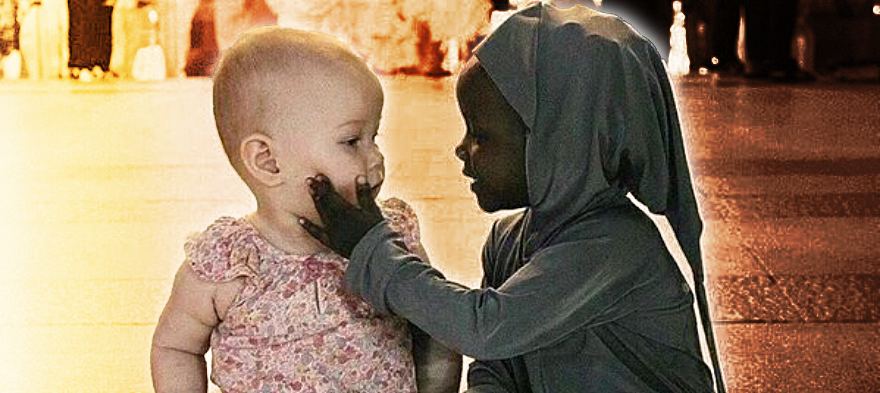
There is a meme going around, well not a meme, a genre of a meme. They typically feature kids from visibly different ethnic backgrounds getting along swell. Usually, the kids are in some type of physical embrace: hugging, holding hands, or something of that nature. This picture is usually labeled with a caption like “Kids don’t see color,” or “Racism is taught.” You will typically see these types of memes after some controversial racial event. They were popular last summer during the George Floyd fallout. A few sprung up during the “Stop Asian Hate” push. It’s not hard to see why these memes are popular. They are an easy, non-objectionable way to participate in equality discourse without offending anyone, but there is one problem. The captions aren’t true.
Note: This is not saying that kids are racist or that we need some kind of intense diversity training for babies. Actually, this article won’t even attempt to address how to “fix” anything, but it will attempt to dispel the misconception that children “don’t see race.”
The dominant idea behind these posts is that children are more or less blank slates and largely unaware of race until the evils of the world and adulthood creep in. However, extensive research has shown that children are not as colorblind as people think:
Colors and categorization are literally the first skills babies learn. Stereotyping is actually what they are supposed to do at that age. Evolution has designed them that way. The problems arise when they start absorbing negative information about those categories, and unfortunately in our society, that information abounds. This is the reason that little kid TV shows go out of their way to portray characters of different races in a positive light. It may come off as pandering to adults, but for children, it is valuable exposure to additional information for their categories, albeit simulated.
If you had positive cross-racial experiences as a kid, then you may disagree with this information. But if you really think back to your childhood, you were not completely ignorant of race. By the time you are in third grade, you had likely already checked a box on a standardized test to categorize yourself.
You could not raise color-blind children even if you wanted.
The advantage that kids have over adults is that the negative impact of the racial social construct has not yet completely penetrated their worldview … but it has started. It suffices to say: [pullquote]Kids do see race; they just don’t see it the way adults do, but eventually, they will.[/pullquote] How we handle that stage of their development plays a huge role in the way they will go through the rest of their life.
There are no easy or simple answers about how to broach this topic. What is clear to me as a middle school teacher, is that by the time we think kids are “ready” to talk about race, they’ve already got their own ideas. Your kids see their race and other people’s, too. Take that information, and use it responsibly.
Andrew Pillow is a fifth grade social studies teacher at KIPP Indianapolis, a charter school where he has taught since 2011. He is also a former Teach Plus Policy Fellow and he has taught technology and social issues.
If you have a child with disabilities, you’re not alone: According to the latest data, over 7 million American schoolchildren — 14% of all students ages 3-21 — are classified as eligible for special...
The fight for educational equity has never been just about schools. The real North Star for this work is providing opportunities for each child to thrive into adulthood. This means that our advocacy...
The story you tell yourself about your own math ability tends to become true. This isn’t some Oprah aphorism about attracting what you want from the universe. Well, I guess it kind of is, but...
Your donations support the voices who challenge decision makers to provide the learning opportunities all children need to thrive.
Ed Post is the flagship website platform of brightbeam, a 501(c3) network of education activists and influencers demanding a better education and a brighter future for every child.
© 2020–2024 brightbeam. All rights reserved.